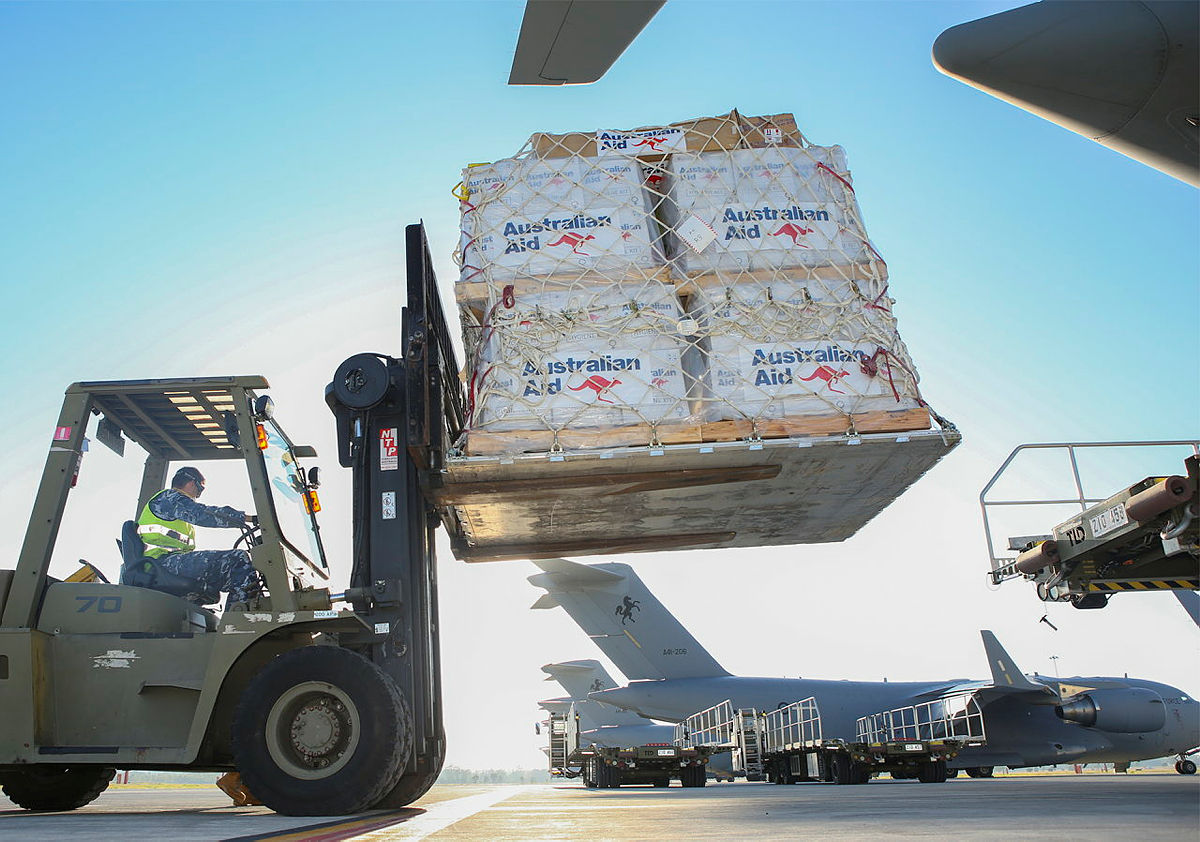
If Australia’s relationship with China continues to deteriorate, part of Beijing’s response could be to put more effort into challenging our strategic interests in our immediate region—the South Pacific.
This is happening already in Papua New Guinea, Solomon Islands, Vanuatu and Fiji—our closest and most strategically important neighbours.
However, Australia’s approach to countering China’s activities in the region needs an urgent rethink.
Our aid programs, generous though they are, as well as the Pacific step-up initiative, on their own are just not capable of successfully challenging and reducing China’s regional influence. The time has come for Australia to go big and be bold when it comes to our strategic role in our region, and in PNG in particular.
Our $600-million-a-year PNG aid program needs a major restructure. It’s important, and it does good work in PNG, but it is simply not doing anything to minimise China’s role right across PNG, in infrastructure, education, agriculture and communications.
Recently, Australian mining magnate Andrew Forrest visited PNG and signed a memorandum of understanding with the PNG prime minister to undertake feasibility work on the Purari hydro-power proposal. This project, in the Gulf Province close to Australia, has long been talked about.
Origin Energy devoted some resources to the proposal a decade ago, but sadly it ended up going nowhere. The Queensland government at the time was interested, as were a number of mining companies, but it didn’t progress. The PNG government has rekindled interest in the project through its state enterprises holding company, Kumul Consolidated Holdings.
It may well be that Forrest’s interest lies in a cheap, reliable energy source as the foundation for a possible smelter in the neighbouring Western Province, which is even closer to Australia.
But the Australian government should not be relying on Forrest alone to advance the proposal. It ought to be a big-picture project to enhance our role in PNG in a way that really helps our neighbour deliver affordable electricity for its people and its businesses, and open up real opportunities for downstream processing, including processing of iron ore and bauxite from Australia.
If Australia embraces this project, in conjunction with banks, construction companies and the minerals sector, it won’t be open to the Chinese to potentially invest in.
The other advantage of seriously looking at Purari is that it will reduce the case for another hydro-electric project China is pushing relentlessly with the PNG government—the Ramu 2 hydro-power station.
Initial approval for this project was given in 2015 to a China construction consortium, with China Exim Bank financing. Ramu 2 would probably bankrupt the national power entity, PNG Power, given limited energy demand and the estimated construction cost of around US$2 billion.
Purari, if properly financed and developed, could meet PNGs key energy needs for years to come even with a staged development over a period of years.
A second big-picture and high-impact project Australia could consider is redevelopment of PNG’s universities, which have been chronically underfunded for years. There’s some evidence of Chinese interest in the tertiary sector, building on its major school project in Port Moresby and smaller projects in other parts of the country.
In 2010, the Australian and PNG governments initiated a review of PNG’s tertiary education sector by Ross Garnaut and Sir Rabbie Namaliu. Some additional funding has been provided, but the case for a major restructure of the whole sector, with priority being given to mining, agriculture, business, information technology and tourism, is an overwhelming one.
Apart from selected major projects, it’s inevitable that Australia, supported by the International Monetary Fund and the World Bank, will have to have frank conversations with the PNG government about its capacity to get itself out of, or at least minimise, its indebtedness to China.
Already PNG has total national debt of close to K40 billion (A$15 billion), now over 40% of GDP. A significant proportion, and a growing share, is in the form of loans from China in areas such as infrastructure, communications and agriculture. And this debt doesn’t include the full impact of the Belt and Road Initiative agenda to which PNG signed up in 2018.
PNG owes China around K2.5 billion (A$1.1 billion) for communications projects—many of them defective—and well as hundreds of millions for road projects already underway.
But much more BRI debt is looming. On the horizon is a US$330 million agricultural industrial park, a commitment to a series of high-priority economic road projects worth at least US$3.5 billion, and a possible involvement in marine park project.
The capacity of the national government and state-owned entities, let alone provincial governments, to service PNG’s existing debts to China is already questionable. But add in what is proposed, and promised, and the debt-managing capacity is more than just questionable.
We might need to be innovative in our discussions with PNG on reducing its reliance on loans from China and on stopping those debts from expanding in a way that is not fiscally responsible. PNG has been reluctant to agree to an IMF-led restructure package that might include devaluation and public sector cuts. But it may have little alternative, other than a bailout from China, which was on the agenda a year ago.
While recommendations here have focused on PNG, they are of equal relevance to Australia’s relationships with other South Pacific nations.
Our immediate priority must be to look at big and bold projects that enhance our influence and assist Pacific nations in key areas at a time when they are sorely tested, economically and strategically.
 Print This Post
Print This Post